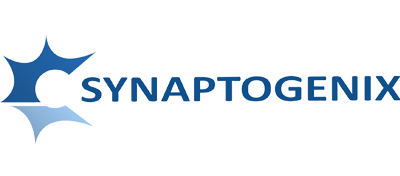Neurotrope Provides Business Update and Reports Second Quarter 2018 Financial Results
NEW YORK, Aug. 13, 2018 /PRNewswire/ — Neurotrope, Inc. (NTRP), a clinical-stage biopharmaceutical company developing novel therapies for neurodegenerative diseases, including Alzheimer’s disease (AD), today provided a business update outlining recent clinical development progress and other noteworthy events that occurred subsequent to the end of the quarter and unaudited financial results for the quarter ended June 30, 2018.
Clinical Development Highlights
On July 17, 2018, Neurotrope announced that it initiated enrollment of a confirmatory Phase 2 clinical trial in 100 moderate to severe AD (defined as a Mini Mental State Exam 2 score of 4-15). Patients will be randomized 1:1 to be treated with either Bryostatin-1 20ug, or placebo, receiving 7 doses over 12 weeks. Dosing has begun in the study, and we are anticipating completion of the study sometime during the third quarter of 2019. The study will be conducted at approximately 30 clinical trial sites.
Corporate Announcements
On July 25, 2018 at the Alzheimer’s Annual International Conference (AAIC) 2018 in Chicago, Neurotrope presented comprehensively analyzed data from its recent Phase 2 clinical trial. These new statistical data confirmed and extended previous analyses that Bryostatin caused AD patients, not on baseline memantine therapy, to improve more than 6.1 points over baseline and placebo in their Severe Impairment Battery (SIB) scores, in a pre-specified exploratory endpoint. This improvement persisted at least 30 days after all dosing was completed, as was confirmed with three different rigorous statistical analyses that were presented. These new analyses, together with many previous pre-clinical studies, suggest that Bryostatin can contribute to the anti-amyloid and anti-tau pathways as targeted by many other current company strategies, but may also uniquely engage natural pathways with regenerative benefits for the degenerating brain.
On July 11, 2018, the Company announced the formation of a Scientific Advisory Board being chaired by Dr. Martin Farlow, MD. Other members of the esteemed board are: Drs. Paul Coleman PhD; Daniel F Hanley Jr. MD; Marwan Subbagh, MD, and Lee Jen Wei, PhD.
“We believe that these Phase 2 study results presented at AAIC 2018 in July, suggest potential sustained clinical improvement not previously reported for moderate to severe AD patients. Extensive pre-clinical research suggested that Bryostatin not only activates natural enzymes in the human brain to degrade Amyloid beta and prevent abnormal tau, but we believe that it also activates natural enzymes to promote synaptic growth and prevent neuronal death. We believe that these multi-modal enzymatic effects, that include activation of well-known synaptic growth factors, may allow Bryostatin to not only slow down the cognitive decline of the disease, but it may also explain the increase in cognition” said Dr. Charles Ryan, Chief Executive Officer of Neurotrope.
Second Quarter 2018 Financial Results (Unaudited)
As of June 30, 2018, the Company had approximately $11.8 million of cash and cash equivalents. The Company’s only significant financial commitments are the amounts due to Worldwide Clinical Trials for the recently initiated Phase 2 clinical trial of up to approximately $5.5 million. The Company has sufficient capital to complete such confirmatory Phase 2 clinical trial.
About Neurotrope
Neurotrope is at the forefront of developing a new approach to combating AD and other neurodegenerative diseases. The Company’s world-class science offers the potential to realize a paradigm shift to overcome one of today’s most challenging clinical problems — finding a way to slow or even prevent the progression of AD.
In addition to the Company’s Phase 2 trial of Bryostatin-1 in advanced AD, Neurotrope has also conducted preclinical studies of bryostatin as a potential treatment for Stroke, Traumatic Brain Injury, and Fragile X Syndrome, Niemann-Pick Type C disease and Rett Syndrome—rare genetic diseases for which only symptomatic treatments are currently available. The FDA has granted Orphan Drug Designation to Neurotrope for Bryostatin-1 as a treatment for Fragile X Syndrome. Bryostatin-1 has already undergone testing in more than 1,500 people in cancer studies, thus creating a large safety data base that will further inform clinical trial designs in AD.








